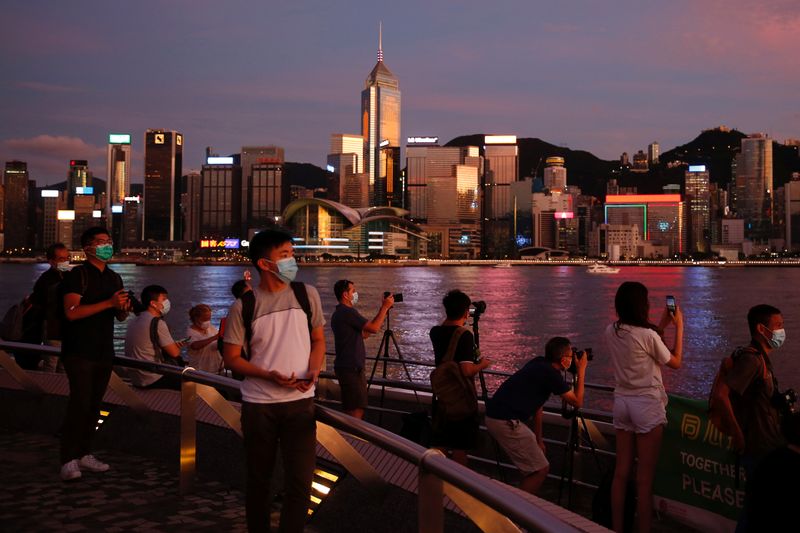By James Pomfret and Jessie Pang
HONG KONG (Reuters) - Hong Kong formally kicked off a two-week registration period for candidates to run in a key legislative election in September, amid fears authorities might try to disqualify an assertive young generation of democrats.
The citywide poll will be a crucial battleground for the city's democratic opposition to try to reclaim some political influence in the wake of tough national security laws China imposed on June 30.
These laws have been decried by critics, including the United States, as a death knell for the city's freedoms and autonomy from China.
Chinese and Hong Kong officials, however, say the laws will bring stability to the financial hub after a restive year, and only affect a very small minority of "troublemakers".
A vanguard of young democrats are raring to get on the ballot, having stormed to big wins in an unofficial "primary" election earlier this month.
These young firebrands, or "localists", who often embrace a more confrontational anti-China stance, have appealed more broadly to younger, disaffected voters who no longer believe the moderate rhetoric of veteran democrats.
"For every candidate in the pro-democracy camp, we must unify at this time, to avoid attacking ourselves and to consolidate our strength to challenge the tyranny," Sam Cheung, one young democratic hopeful, said on Facebook (NASDAQ:FB).
Overshadowing their prospects, however, is the risk of disqualification.
In the past four years, authorities have barred 18 democrats from running in local elections, including prominent activist Joshua Wong, according to a report by the rights group Civil Rights Observer.
Critics say the disqualifications - on grounds including a dissenting ideology, or support for Hong Kong independence - are meant to curb the ascendancy of this new crop of democrats.
At least six young candidates were barred from the previous legislative poll in 2016, including pro-independence leader Edward Leung, who has since been jailed on a rioting charge.
Given the heightened political tensions after last year's often violent anti-government protests, mass disqualifications of candidates could stoke fresh social unrest, though replacement candidates are also poised to jump in if need be.
Hong Kong returned from British to Chinese rule in 1997 with the promise of a high degree of autonomy and broad freedoms including "the right to stand for and take part" in elections.
The imposition of the national security law, however, grants China wide-ranging new powers to clamp down on civil society and dissenting voices in the city, and to over-ride local laws to take jurisdiction over certain big and complex cases.
Should the democrats make history and seize 35 seats or more in the 70-seat chamber for the first time, they could stymie the city's annual budget and deepen oversight of government policy.
"For me, taking part in this election is essentially to resist," said localist, Ventus Lau.
Under the new security legislation, all candidates for local elections must swear allegiance to Hong Kong and pledge to uphold Hong Kong's mini-constitution, the Basic Law.
Some have refused to make such a pledge, though others say it's more important to get on the ballot.

Around 4.47 million of Hong Kong's 7.5 million residents are eligible to vote on September 6.